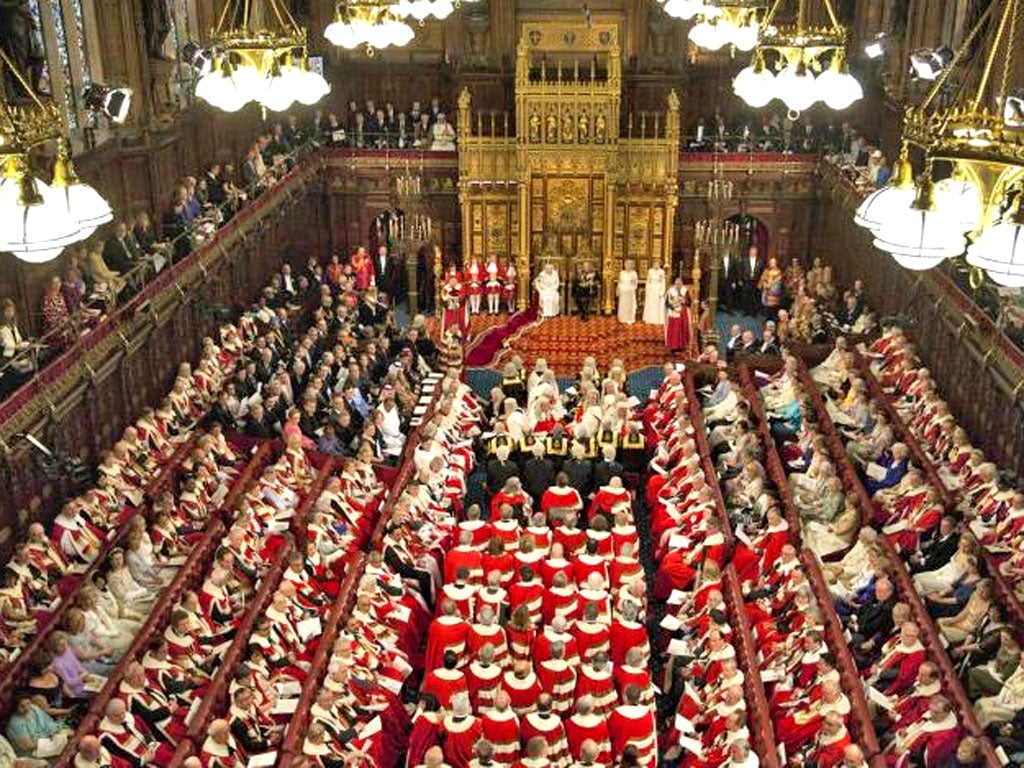PM blames Clegg for 'bad blood' and a backlash over Lords reform
'Incensed' Cameron told deputy that Lib Dems' tactics fuelled rebellion ahead of tonight's vote

Your support helps us to tell the story
From reproductive rights to climate change to Big Tech, The Independent is on the ground when the story is developing. Whether it's investigating the financials of Elon Musk's pro-Trump PAC or producing our latest documentary, 'The A Word', which shines a light on the American women fighting for reproductive rights, we know how important it is to parse out the facts from the messaging.
At such a critical moment in US history, we need reporters on the ground. Your donation allows us to keep sending journalists to speak to both sides of the story.
The Independent is trusted by Americans across the entire political spectrum. And unlike many other quality news outlets, we choose not to lock Americans out of our reporting and analysis with paywalls. We believe quality journalism should be available to everyone, paid for by those who can afford it.
Your support makes all the difference.David Cameron and Nick Clegg clashed yesterday over the Liberal Democrats' hardline negotiating tactics ahead of tonight's crunch vote on House of Lords reform.
The Prime Minister told his deputy that the Liberal Democrats had created "bad blood" and provoked a backlash among Conservative MPs by threatening to derail plans to bring in new constituency boundaries, which would benefit the Tories by up to 20 seats.
Mr Cameron is said to be "incensed" by briefings from Mr Clegg's aides that tonight's vote is a test of the Prime Minister's leadership. He is believed to have told Mr Clegg when the two men met yesterday that the Liberal Democrats' public pressure was counterproductive.
Tory whips claim the rebellion on their benches was fading last week but was fuelled after Richard Reeves, Mr Clegg's outgoing director of strategy, said there would be "broader consequences" for the Coalition's constitutional reforms.
Liberal Democrats insist the pressure was not aimed at Mr Cameron personally, but intended to show their coalition partners how strongly their party feels about the flagship Lords reform plan.
The Coalition faces its first Commons defeat tonight when MPs vote on a timetable motion to limit the debating time for the House of Lords Reform Bill. A defeat, which would severely reduce the measure's prospects of becoming law, looks increasingly likely after 70 Tory MPs signed a letter saying the Bill would "undermine the primacy of the Commons" and cause "legislative gridlock".
Only about 50 of them would need to vote against the timetable motion to defeat the Government because Labour will also oppose it. The Opposition wants more time for the Commons debate.
The Tory rebels include four MPs earmarked for ministerial jobs in Mr Cameron's reshuffle later this year – Jesse Norman, Nadhim Zahawi, Rory Stewart and Penny Mordaunt. They are expected to miss out on promotion if they vote against the Government tonight. Conor Burns, parliamentary aide to the Northern Ireland Secretary Owen Paterson, offered to resign so he can oppose the timetable motion.
As the Commons began a two-day debate on the Bill, Mr Clegg was ambushed by a string of hostile questions from Tory MPs. The Deputy Prime Minister ruled out a referendum, but hinted that the Commons could review the success of the elected peers plan after the first tranche of them were chosen at the 2015 general election.
Mr Clegg said the second chamber was a "flawed institution" with no democratic mandate, but was heckled by Tory backbenchers as he said there was an "unsustainable status quo" in the Upper House.
Mr Clegg said: "It's an institution which then offers those members a job for life, an institution which serves half the United Kingdom and yet draws half its members from London and the South-east, an institution in which there are eight times as many people over 90 as there are under 40, an institution which has no democratic mandate... but which exercises real power."
Liberal Democrats accused Labour of "playing politics" after refusing to say how many days of Commons debate were needed so they could support the timetable motion. But Sadiq Khan, shadow Justice Secretary, insisted Labour was not trying to wreck the Bill. "We believe in Lords reform," he said.
Edward Leigh urged fellow Tories to vote against the Bill, saying: "Then we will end the sad life of this Coalition, we can have a general election, [and] a Conservative government."
Join our commenting forum
Join thought-provoking conversations, follow other Independent readers and see their replies
Comments